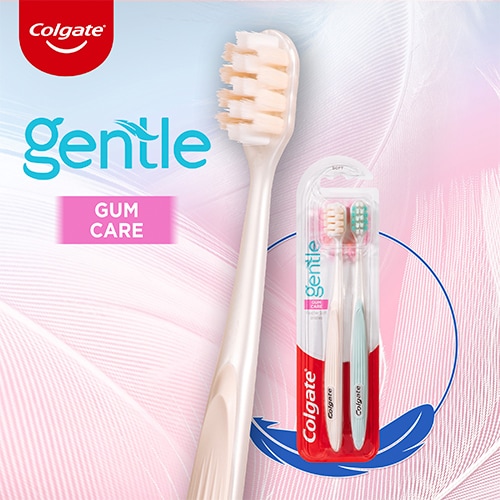Pregnancy Teeth Whitening: Safe Solutions
The journey of pregnancy is a unique and transformative experience for women, filled with numerous physical and emotional changes. One of the lesser-discussed aspects of pregnancy is the impact it can have on oral health, including teeth discoloration. Many pregnant women find themselves dealing with teeth that have become duller or yellower due to various factors such as hormonal changes, increased acidity in the mouth, or poor oral hygiene. The desire for a brighter, healthier smile is natural, but it’s crucial for pregnant women to approach teeth whitening with caution, ensuring they choose methods that are safe for both themselves and their unborn baby.
Understanding Pregnancy-Related Teeth Discoloration
During pregnancy, the body undergoes significant hormonal shifts, particularly the increase in estrogen and progesterone levels. These hormonal changes can affect the teeth and gums in several ways. For instance, some women may experience gingivitis, a mild form of gum disease characterized by red, swollen gums that bleed easily. This condition can lead to increased sensitivity and, potentially, changes in tooth appearance. Additionally, the heightened sense of smell and taste during pregnancy might lead to dietary changes, including consuming more sugary or acidic foods and beverages, which can contribute to teeth discoloration.
Safety Considerations for Teeth Whitening During Pregnancy
The primary concern with teeth whitening during pregnancy is the potential impact of the whitening agents on the fetus. Most commercial teeth whitening products contain hydrogen peroxide or carbamide peroxide, which breaks down into hydrogen peroxide in the mouth. While the concentrations of these agents in over-the-counter products are generally considered safe for the average consumer, pregnant women are advised to exercise caution. The American Dental Association (ADA) and many dental professionals recommend avoiding teeth whitening during pregnancy, especially during the first trimester, due to the lack of comprehensive research on the effects of these chemicals on fetal development.
Safe Alternatives for Whitening Teeth During Pregnancy
Given the potential risks associated with conventional teeth whitening products, pregnant women can explore safer alternatives to achieve a brighter smile:
Professional Dental Cleaning: Regular dental cleanings are not only safe during pregnancy but are also highly recommended. A professional cleaning can help remove surface stains and plaque, leaving teeth looking brighter and feeling cleaner.
Natural Whitening Methods: Certain natural remedies have been touted for their teeth whitening properties, although their effectiveness can vary. These include:
- Baking Soda and Water: Mixing baking soda with water to create a paste can gently remove surface stains. However, it’s essential to use this method sparingly and with a soft toothbrush to avoid damaging the tooth enamel.
- Hydrogen Peroxide Mouthwash (Diluted): Some pregnant women use a diluted hydrogen peroxide solution as a mouthwash. However, it’s crucial to consult with a dentist before using any form of hydrogen peroxide to ensure the concentration is safe.
- Charcoal Toothpaste: Activated charcoal can absorb stains on the teeth, but its use during pregnancy should be discussed with a dentist, as it may not be suitable for everyone, especially if it contains other controversial ingredients.
Dietary Changes: Maintaining good oral hygiene and making conscious dietary choices can also contribute to a healthier, brighter smile. Pregnant women are advised to:
- Avoid Stain-Causing Foods and Drinks: Limit consumption of coffee, tea, red wine, and berries, which are known to cause teeth staining.
- Increase Calcium Intake: Calcium is crucial for tooth health. Foods rich in calcium, such as dairy products, leafy greens, and fortified plant-based milk, can help maintain strong teeth.
Conclusion
While the desire for a whiter smile during pregnancy is understandable, safety should always be the top priority. Pregnant women should consult with their dentist before starting any teeth whitening regimen. In many cases, the best approach is to wait until after pregnancy to pursue conventional teeth whitening methods. By focusing on good oral hygiene practices, adopting a balanced diet, and considering safe, natural alternatives, women can maintain a healthy, beautiful smile throughout their pregnancy and beyond.
Is it safe to use hydrogen peroxide for teeth whitening during pregnancy?
+It's generally recommended to avoid using hydrogen peroxide for teeth whitening during pregnancy, especially during the first trimester, due to the lack of comprehensive research on its effects on fetal development. However, always consult with a dentist for personalized advice.
Can professional dental cleanings help with teeth whitening during pregnancy?
+Yes, professional dental cleanings are not only safe during pregnancy but can also help remove surface stains, contributing to a brighter smile. Regular cleanings are an essential part of maintaining good oral health during this period.
What are some safe, natural methods for whitening teeth during pregnancy?
+Safe, natural methods include using a baking soda and water paste, certain dietary changes like avoiding stain-causing foods, and increasing calcium intake. However, it's crucial to discuss these methods with a dentist to ensure they are appropriate for your specific situation.
In the realm of pregnancy and oral health, prioritizing safety and consulting with healthcare professionals is key. By understanding the potential impacts of pregnancy on teeth and exploring safe alternatives for achieving a brighter smile, pregnant women can navigate this aspect of their health journey with confidence and care.
